‘We came here to redeem a land and we end up contaminating it’: Israel’s pollution problem in Palestine
As the occupier, Israel has obligations both to the people and environment, under international law. It is time that the world and its courts step up the pressure and hold Israel accountable, writes Charlie Jaay
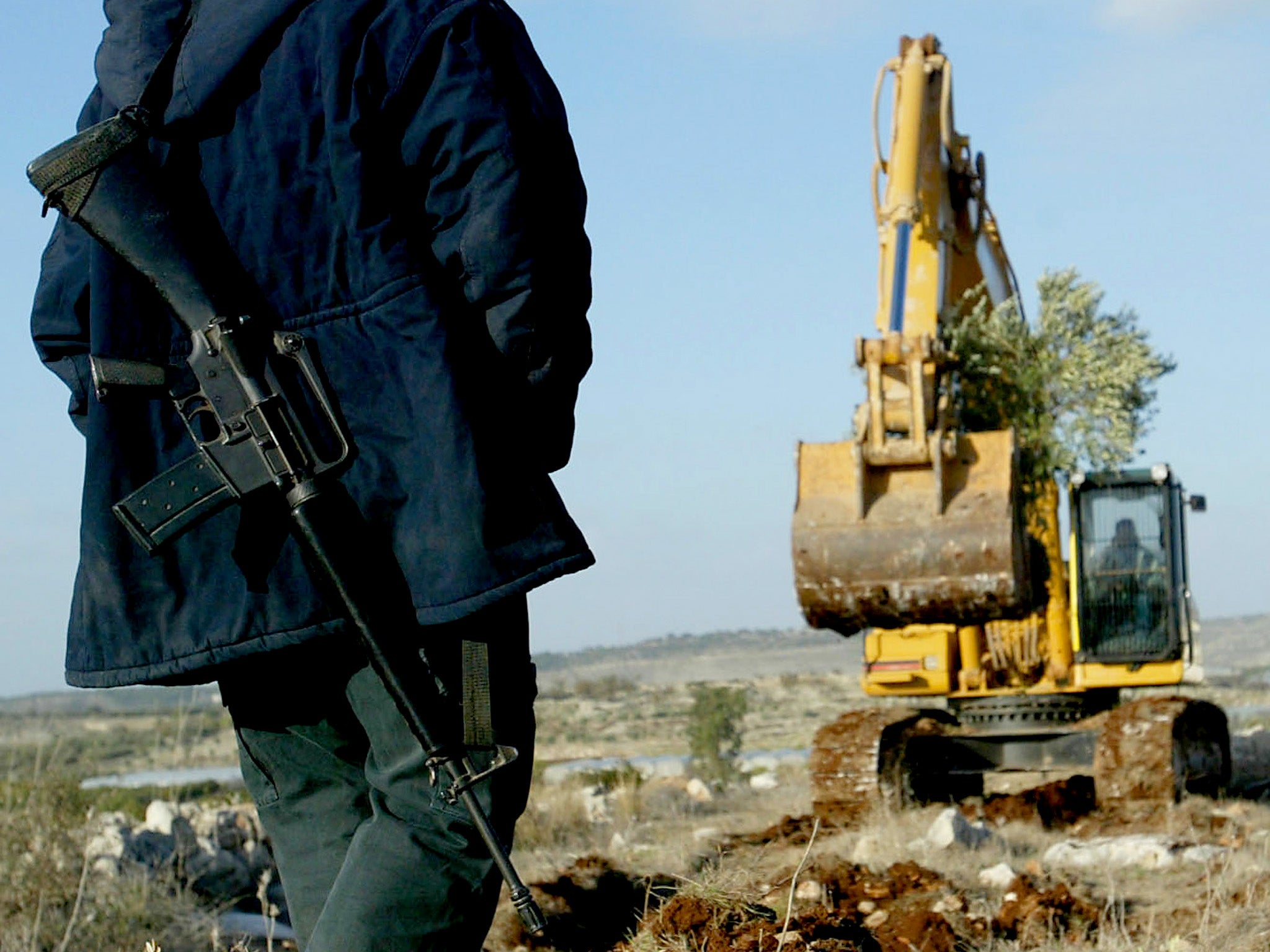
“It’s a Zionist paradox. We came here to redeem a land and we end up contaminating it.” - Alon Tal, founder of the Israel Union for Environmental Defence.
Palestine is a small but critical part of the Fertile Crescent. With its rich soil and Mediterranean climate, this Middle Eastern country is considered to be the Cradle of Civilisation, the area where plants and animals were first domesticated, approximately 10,000 years ago, allowing humans to settle, and civilisation to develop.
Its unique position between Europe, Asia and Africa, and diverse range of habitats, has made occupied Palestine a designated Mediterranean Biodiversity Hotspot. According to the Environment Quality Authority, it has around 3 per cent of global biodiversity, and is an important centre of genetic diversity for a wide range of crops – wild ancestors of wheat, barley, vines, olives, onions and pulses, can all be found here.
The area is also of major importance to migrating birds such as storks and pelicans, with over 520 species recorded, along with more than 70 species of mammals, 2,700 plant species, and thousands of reptiles, amphibians and insects.
Although they make up over half the population, the Palestinians utilise less than 15 per cent of their historic territory and have been denied access and control over their land, borders and natural resources for decades, due to the continued Israeli occupation. In a region already feeling the affects of climate change, with temperatures set to rise and rainfall decrease, this lack of sovereignty has had a severe impact, not just on the people of the Occupied Territories, but also on the natural world.
A major threat to the landscape and biodiversity, and also to the two-state solution, is the confiscation of land for settlements, built for Jewish immigrants who come from all over the world.
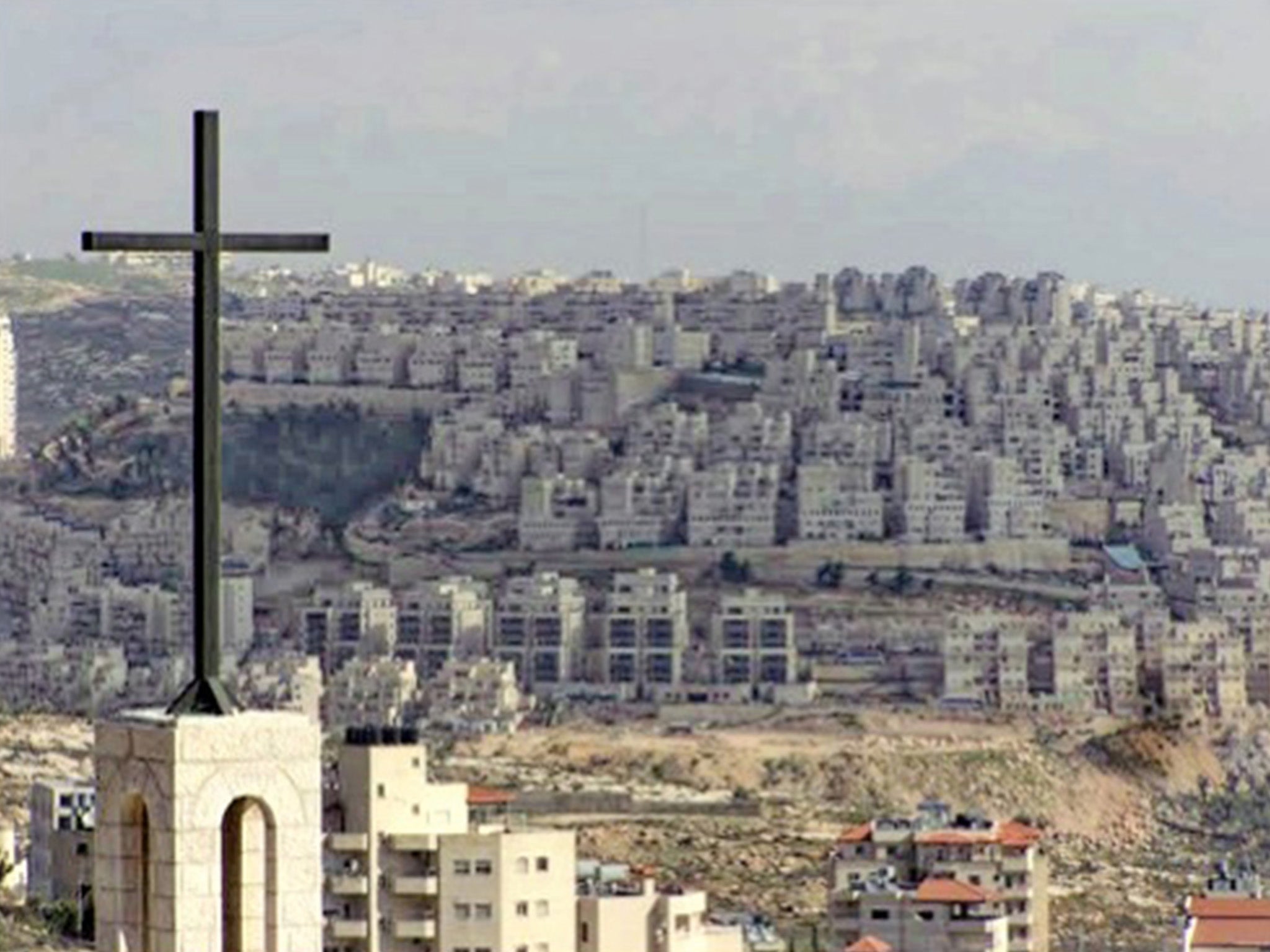
Thousands of hectares of farmland, have been taken for the purpose of building settlements and their associated infrastructure, both of which are illegal under international law. Sometimes using the excuse of preventing damage to nature, or turned into “firing zones”, only later to become a settlement.
These settlements, and the settlers who reside in them, are protected by checkpoints, razor wire and heavily armed Israeli forces who prevent Palestinians from entering the surrounding buffer zones, therefore rendering any farmland in these areas useless.
The settlement project began after 1967, when Israel occupied the remainder of historic Palestine – the West Bank, East Jerusalem and Gaza – and there are now over 680,000 settlers. Their numbers continue to increase, with the Israeli political right stating that it hopes to grow the population to 1 million.
This relentless expansion threatens habitats and ecosystems, in addition to putting a substantial strain on Palestine’s limited natural resources. However, it shows no sign of abating, with plans for 12,000 new settlement units announced in 2020 alone. Back in 2014, the area of forest replaced by settlements in Occupied Palestine was 160 square kilometres. This figure will no doubt have increased, due to exponential settlement growth, but no recent figures are available.
Prior to 1996, Jabal Abu Ghneim was a forested hilltop and a popular Palestinian picnic destination. Palestinians are now barred from the area and the trees have all disappeared. They have been replaced by Har Homa, a Jewish settlement, housing approximately 15,000 settlers. Further expansion is currently planned to the north of Bethlehem, in order to cut the city off from Jerusalem.
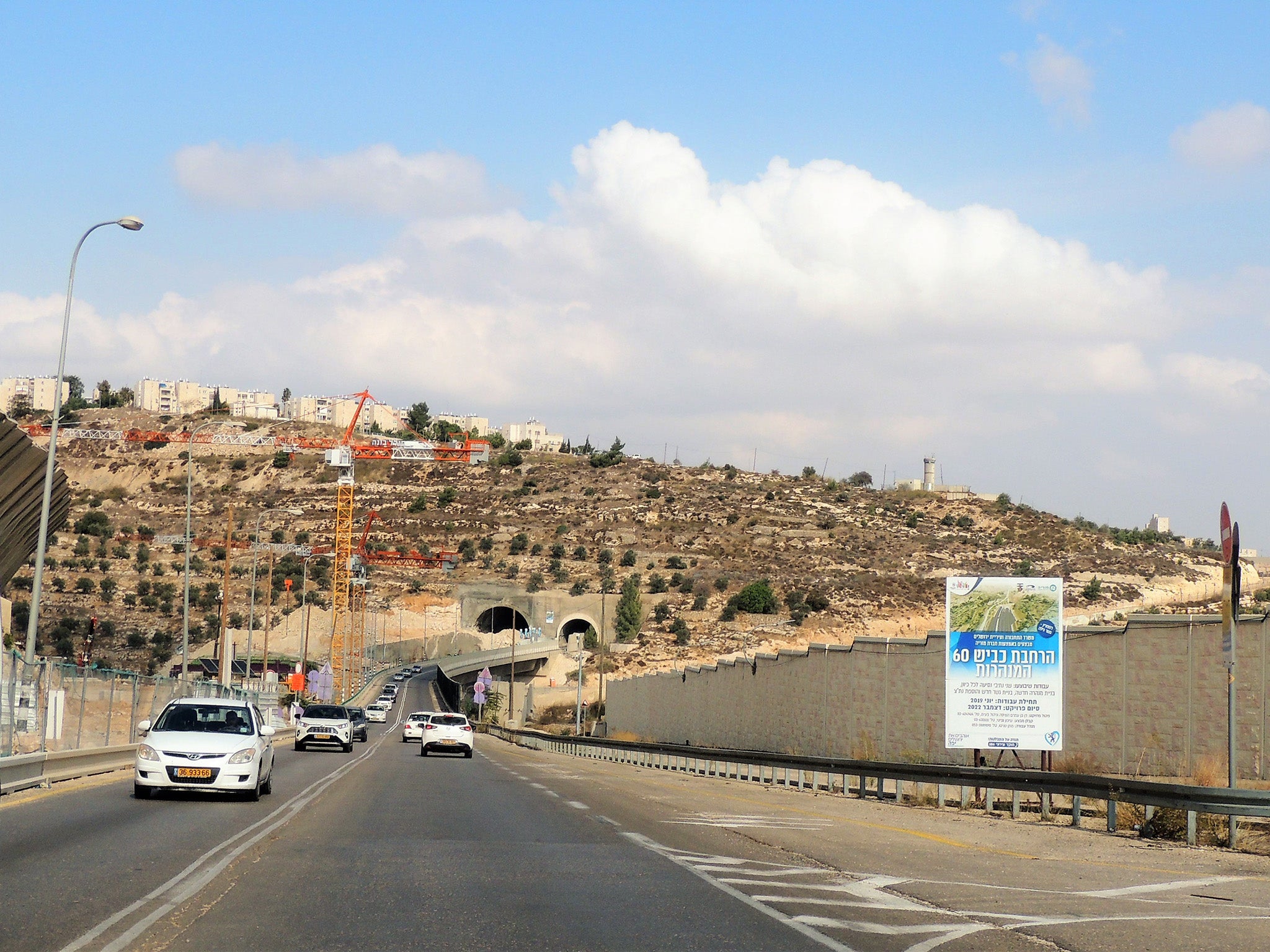
Settlements are also a major source of pollution. Many have outdated wastewater treatment plants or none at all so, instead, illegally pump huge quantities – either partially treated or untreated – onto Palestinian communities and farmland.
Wastewater from settlements is one of the biggest pollutants in the West Bank, and can include a variety of harmful substances, such as detergents, bleach products, pesticides and often also a large amount of sewage. The chemicals, manufacturing waste and bacteria it contains contaminate water sources and cause soil quality to become severely damaged, affecting productivity and even killing crops.
Further land is taken from the Palestinians by the development of Israeli-only bypass roads, which connect these settlements to each other, and to Israel. Whilst disrupting ecosystems, these roads are crucial to increasing the settler population, so plans are being promoted in the West Bank, by the Israeli government, to construct hundreds of kilometres of these.
Although there are no settlements in Gaza, wastewater pollution is also an extremely big problem there.
Bahaa Alagha, director of Gaza’s Water and Environment Quality Authority, said: “The tight siege over Gaza for more than a decade is causing our wastewater treatment to be extremely inefficient, so discharging it to the environment either raw or partially treated. Gaza produces about 160,000 cubic metres per day of wastewater, of which about three-quarters is still not treated efficiently.
This act threatens public health, especially when you know that most Gazans consider the beach, in summer, as their only breathing space
“Due to this last aggression, wastewater collection, pumping and treatment, and electrical power supplies were all severely affected, leading to most of this now being discharged to Gaza beach as raw wastewater – before the aggression it was partially treated.
“This act threatens public health, especially when you know that most Gazans consider the beach, in summer, as their only breathing space,” he said.
Polluting companies are subject to strict legislation in Israel, but not in the occupied territories, where Israel offers generous financial incentives such as tax breaks and government subsidies to industrial zones in settlements, making it more profitable, and much easier, to build and operate these in the West Bank rather than in Israel. Currently there are 19 Israeli industrial zones constructed on Palestinian land in the West Bank and East Jerusalem, although building and running these are considered illegal under international law. These industries result in a wide variety of hazardous urban waste and industrial by-products such as sewage, infectious medical waste, metals, batteries, solvents and used oils, all making their way from Israel to the West Bank, where they endanger both the people and the environment and are in contravention of the Geneva Conventions and the Basel Convention, of which both Israel and Palestine are party.
E-waste, or electronic waste, is another severe source of pollution, with an estimated 57,000 to 69,000 tons coming over annually from Israel to be processed in Palestinian villages, causing heavy metals and pollutants to enter the soil and water sources. Tackling this E-waste pollution before 2023 should, according to the United Nations Environment Programme, be one of the priorities for environmental protection and management of Palestine, as it is hugely detrimental to the local fauna, flora and human health.
According to a report by B’Tselem, the Israeli Centre for Human Rights in the Occupied Territories, there are disparities when it comes to the regulation of polluting plants, including those concerned with waste treatment.
The first concerns air pollution. Strict air pollution laws which exist in Israel, do not apply in settlement industrial zones in Occupied Palestine.
Secondly, when hazardous waste is treated in Israel, the type and amount, method of treatment, destination of the wastewater, and quantity and destination of hazardous by products all have to be reported. In the West Bank none of these factors are recorded, and there is no official data available on any type of trans-boundary waste movements.
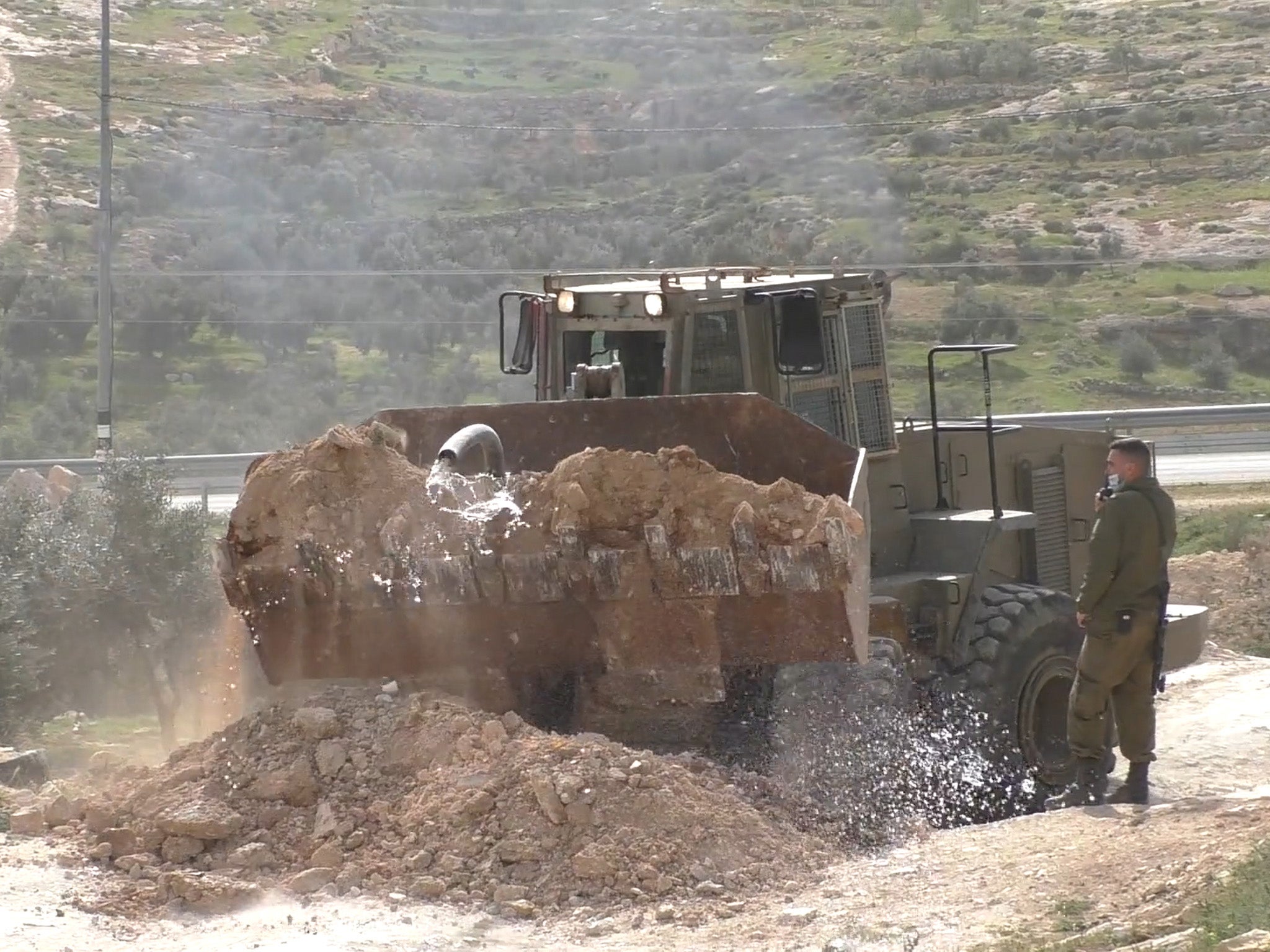
These disparities have led many of Israel’s most polluting industries to move across the other side of the Green Line. Geshuri Industries, which produces agrochemicals, was closed down in Israel, by court order, due to toxic emissions, but has relocated to the West Bank, where it pollutes the environment and negatively impacts human health.
In recent years, radioactive elements have been found in the occupied Palestinian territories, which are at some of the highest levels found globally. Israel’s Dimona nuclear reactor is one of the largest in the Middle East, and is currently expanding, although it has already outlived its lifespan by over 20 years.
According to the report called Israeli Nuclear Waste Poisons Palestinian Lands, that was published by Friends of the Earth Palestine and Pengon, numerous studies have shown the Israeli nuclear and chemical industries release radioactive materials and hazardous chemicals into the West Bank and Gaza. In the area around Hebron, soil, rocks, plants and water have all been found contaminated with extremely high concentrations of radiation, in some cases the highest levels found globally. The presence of radioactive material at such high levels, has been linked to leaks from Israel’s nuclear reactor, and military activities, but burying of nuclear waste is also suspected. High levels of radiation in spring water help to confirm this. Anecdotal reports support conclusions that this is occurring in some 50 landfill sites across the West Bank and Gaza. Disabilities, deformities and cancers, especially in children are also increasing in the suspected areas.
All water resources and water-related infrastructure in the occupied Palestinian territories are under the control of the Israeli military. The most important groundwater resource used by Israelis and Palestinians is the Mountain Aquifer. Although 80 per cent of its recharge area lies beneath the West Bank, Israel uses about 90 per cent of this water.
It is extremely difficult for Palestinians to obtain permits to drill new wells or rehabilitate existing ones. If and when drilling is allowed, everything has to be authorised by Israel, who even controls depth and sets quotas on how much water can be drawn from existing wells.
One of the fundamental pillars of Israel’s apartheid regime is to take over the vast majority of the region’s resources, and to use them to further its own interests
Although the World Health Organisation recommends 100 litres of water per capita per day should be the minimum, the daily per capita water consumption of Palestinians in the occupied territories is on average 88 litres, compared with almost 260 litres per capita in Israel.
Amit Gilutz, spokesperson for B’Tselem, said: “One of the fundamental pillars of Israel’s apartheid regime is to take over the vast majority of the region’s resources, and to use them to further its own interests – namely, to promote and perpetuate Jewish supremacy – at the direct expense of Palestinians.
“Israel took over the most significant sources of water in the West Bank, including the Mountain Aquifer and numerous springs, and it is using them to benefit the economy of its illegal settlements, including their industry, agriculture and tourism, while at the same time creating a water shortage crisis for all Palestinians living in the West Bank, ranging from milder to extremely severe,” he said.
“In the case of dozens of Palestinian farming-shepherding communities, scattered all over the West Bank, which Israel refuses to connect to the water grid, Israel will go as far as actively destroying water lines and infrastructure laid by residents, as part of its efforts to forcibly transfer them. In some of these communities, some of the most impoverished in the region, daily average water consumption can go as low as 20 litres per person, only one fifth of the World Health Organisation’s recommendation.
“In Gaza, repairing the water and sanitation infrastructure, which was heavily damaged in repeated Israeli bombings, is highly restricted due to Israel’s 14-year blockade. Any materials Israel considers ‘dual purpose’, ie materials that can be used for either civilian or military purposes, including basic construction materials, is subject to severe restrictions and scrutiny, which delay and sometimes make repairing damaged infrastructure impossible. Meanwhile, 97 per cent of the water pumped from the aquifer is unsafe to drink and the aquifer itself on the brink of collapse,” he said.
In addition, access to surface water from the Jordan River has been prohibited to Palestinians by the Israeli occupying forces since 1967, and its flow has been diverted upstream of the West Bank. This has caused significant environmental impacts on the Jordan valley and the dead sea, which has lost 90 per cent of the water amount that reached it in the mid-19th century, with water levels dropping by 1 metre every year.
Since 2002 Israel has been constructing the separation barrier, which reaches up to 8 metres high and is over 700 kilometres long. It strays from the Green Line and cuts deep into Palestinian territory, largely been built along the Mountain Aquifer, where some of the most fertile agricultural land can be found.
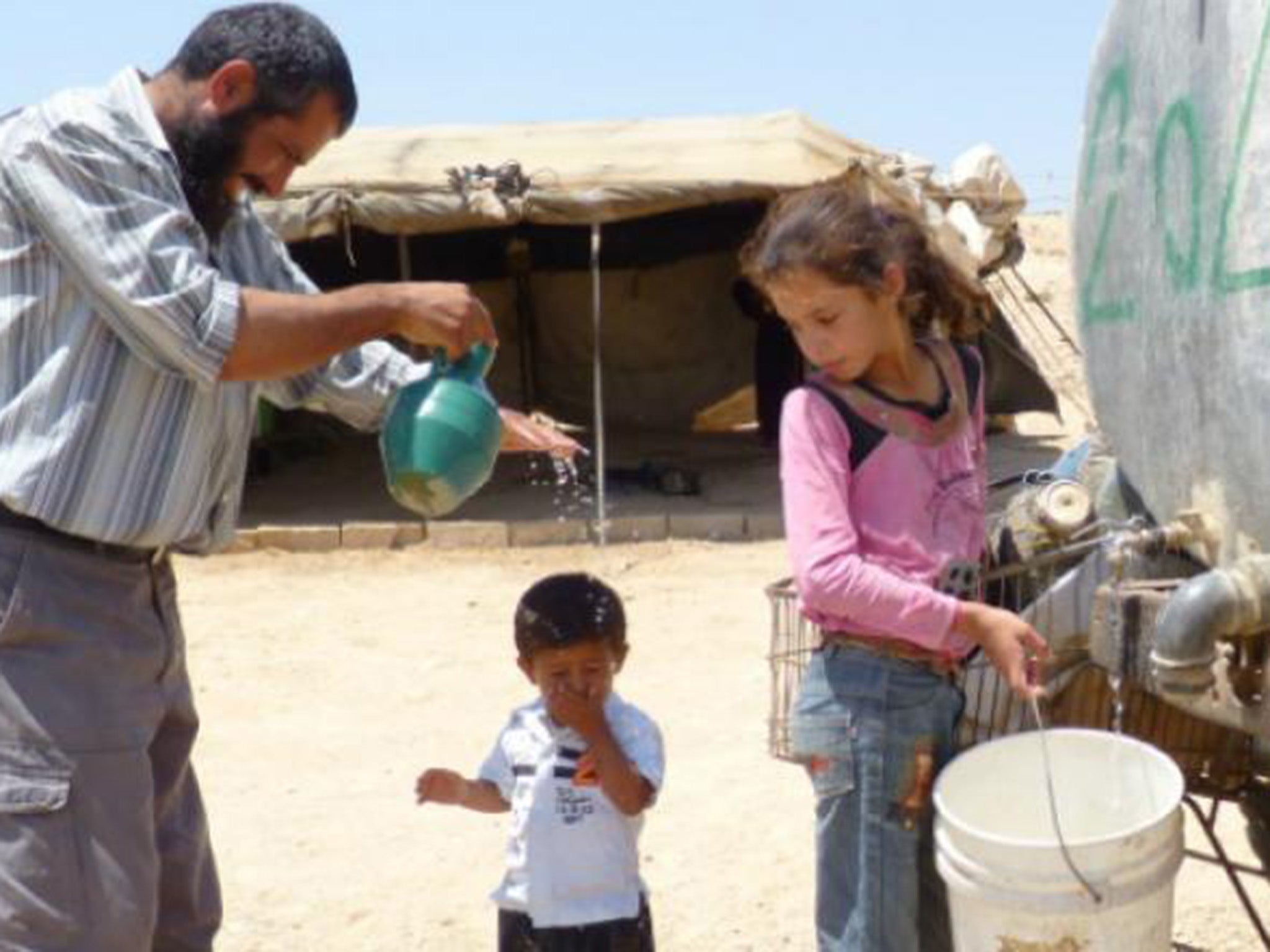
Dr Ayman Rabi, director and founder of the Palestine Hydrology Group, said: “The separation wall that Israel has built in the West Bank, isolates 11 groundwater wells that produce around 1.2 million cubic metres per year. The wall has deprived Palestinian farmers from accessing these wells and their farmland, since construction some 18 years ago.
“It is estimated that more than 2,000 dunums (1 dunum = 1,000 metre square) that used to be cultivated with citrus, guava, vegetables are no longer cultivated, resulting in huge economic losses for farmers, whose livelihood is dependent on these farmlands and wells,” he said.
Its construction has led to thousands of acres of Palestinian land being burned, and tens of thousands of olive trees uprooted, some of which have been 600 years old, and protected by International Cultural Heritage Law.
The construction and long-term existence of the barrier also has a huge impact on nature. Habitat fragmentation and severe restriction of animal movement have led to reduced genetic diversity of both fauna and flora, and threatens their viability. Mammals, such as foxes, gazelles, badgers and ibex are particularly affected, as they would normally move between different territories but may now find feeding grounds and water sources cut off. The Environment Quality Authority considers the barrier one of the main threats to biodiversity in the West Bank.
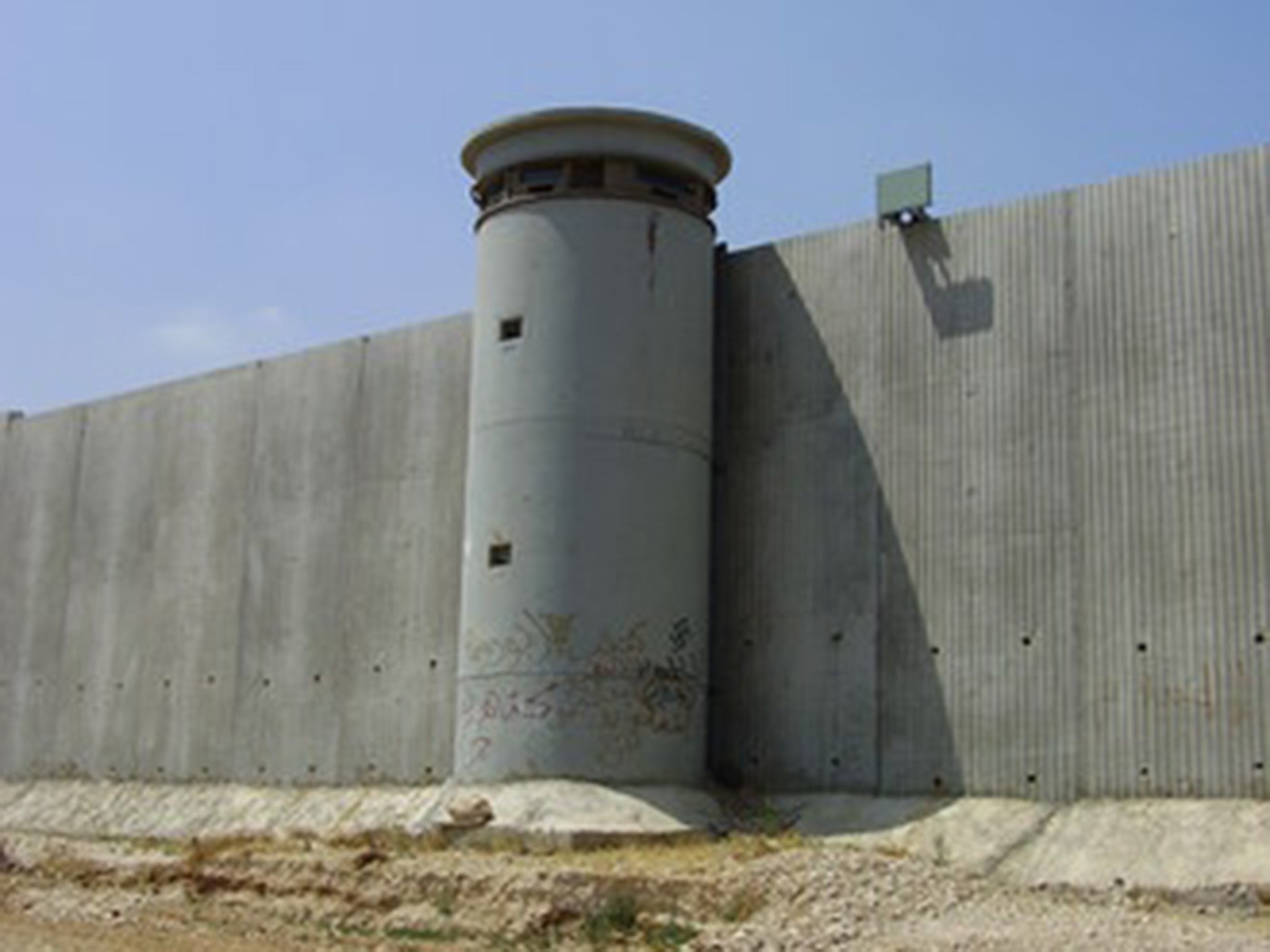
Between the Green Line and barrier is the “seam zone”, which effectively strip clears further vegetation and trees, and constitutes further land loss of around 10 per cent of the West Bank. This area is declared a closed military zone for Palestinians, unless their home is here, for which they then require a permit.
Much of the confiscated land for these military zones, settlements and nature reserves is suitable for livestock grazing, but is not accessible to Palestinians. As a result, the available land becomes overgrazed, resulting in vegetation loss, soil erosion and, eventually, desertification.
Destruction of trees and land has been common practice since 1967, with over 2.5 million so far uprooted.
Khitam Ismael Ya’qoub, a Palestinian teacher and farmer from Deir Ballut, in the West Bank, inherited her land from her family, but earlier this year, due to claims the trees were planted on government-owned land, Israeli soldiers and seven bulldozers destroyed everything – all 750 olive trees, figs, almonds and grapes were uprooted – and her land was sprayed with chemicals. The soldiers not only destroyed her trees, but nearly 3,500 in the area. After the uprooting, villagers were helped by Zaytoun, who supported a tree programme that planted olive trees in Khitam’s village, and as a result her land has been replanted.
This strategy, of destroying Palestinian trees, similar to destroying their landscape and limiting access to it, is intended to sever the connection between Palestinians and their land, and break their spirit. It has not only caused soil erosion and desertification, but also loss of thousands of Palestinian farmers livelihoods.
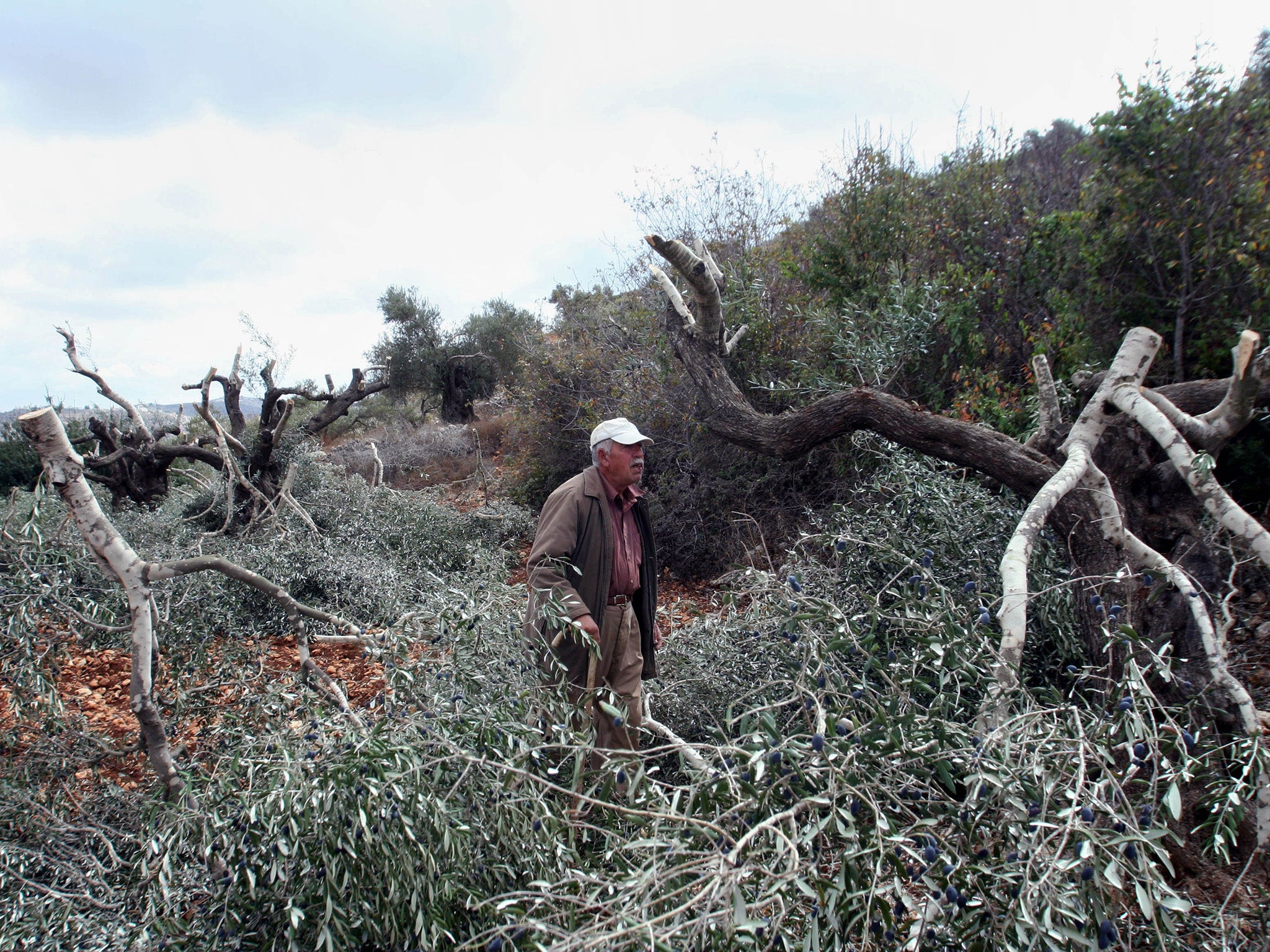
The United Nations Environment Programme states that “sustainable environmental governance cannot exist without respect for human rights”.
Environmental protection and human rights are inextricably linked, but both have, so far, proved illusive in the occupied Palestinian territories, where the occupation takes its toll on both the Palestinians, and the resources they heavily rely upon.
Bahaa explains that last month’s aggression on Gaza has inflicted huge harm on Gaza’s fragile environment, adding to that already caused by Israeli policies and previous acts on the ground.
One of the problems he is now helping to tackle is how to safely dispose of a “huge” amount of hazardous waste, a by-product of the bombarding and burning of a large storehouse complex for agricultural products, including all types of pesticides and derivatives.
Palestinians have no effective means of obtaining justice through their occupier, with a report by Al-Haq, a Palestinian human rights organisation, finding there to be “insurmountable barriers to justice within the domestic legal system”.
As the occupier, Israel has obligations both to the people and environment, under international law. It is time that the international community and its courts step up the pressure and hold Israel accountable.
This article was amended on 28 June 2021 to attribute claims relating to the alleged dumping of radioactive and hazardous waste to the report from Friends of the Earth Palestine and Pengon. Amit Gilutz’s quote was also amended. He was previously quoted as saying that ‘dual purpose’ materials were not allowed into the strip, whereas these materials are not banned outright, but tightly controlled.
Join our commenting forum
Join thought-provoking conversations, follow other Independent readers and see their replies
Comments
Bookmark popover
Removed from bookmarks